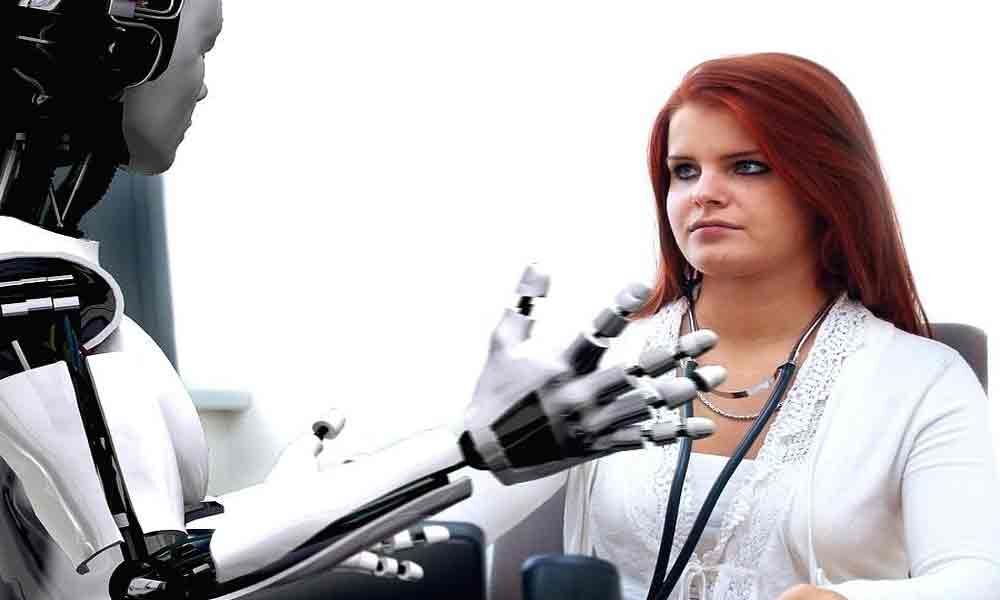Live
- Cyberabad sees 64 per cent Surge in Crime Rate
- Maternal Deaths: Collector O Anand expresses ire over medical staff
- TTD unveils vision for Global Outreach
- Women should not be confined to homes: CM Naidu
- Xmas bells toll in churches as city glows with festive joy
- Governor, CM extend Christmas greetings
- Beacons of hope and love born on December 25
- Vajpayee’s legacy lives on as country marks his birth centenary
- Rythu Bharosa to pick best from PM -KISAN scheme
- Medak wears season’s festive look
Just In

People with advanced computer skills are more likely to accept and use digital healthcare services and robot doctors, says a study by an Indian-origin...
People with advanced computer skills are more likely to accept and use digital healthcare services and robot doctors, says a study by an Indian-origin researcher. "There is increasing use of automated systems in the medical field, where intake is now often conducted through a kiosk instead of by a receptionist," said S Shyam Sundar, Professor at Pennsylvania State University in the US.
"We investigated user acceptance of these 'robot receptionists,' along with automated nurses and doctors," Sundar added. For the study, scientists recruited participants from the online workforce Amazon Mechanical Turk to gain a better understanding of user psychology behind the acceptance of automation in clinics.
The research team gauged the participants' preconceived beliefs about and attitudes toward machines -- what is called a "machine heuristic." The team measured participants' adherence to the machine heuristic by asking them to indicate their level of agreement with statements such as, "When machines, rather than humans, complete a task, the results are more accurate."
"We found that if you're high on machine heuristic and you're high on power usage, you have the most positive attitude toward automated healthcare providers. This combination seems to make people more accepting of these technologies," said Sundar. "A power user (a person with advanced computer skills) is more likely to accept a robot doctor, for example, than a non-power user," Sundar added.
The results were presented at the ACM Conference on Human Factors in Computing Systems in Glasgow, Scotland. According to Sundar, the healthcare industry can benefit from increased reliance on automated systems.
"Doctors are limited by their human bandwidth, by their experience, knowledge and even state of mind from minute to minute," he said. "In contrast, machines can be programmed to 'think' of all the possible conditions that a patient's symptoms could point to, and they never get tired. Some level of automation is clearly needed."

© 2024 Hyderabad Media House Limited/The Hans India. All rights reserved. Powered by hocalwire.com







